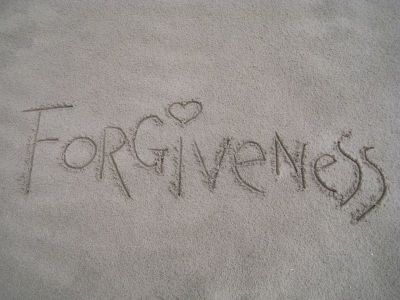If Forgiveness Makes Us Stronger, Why Do We Hold on to Hate?

Forgiveness should be a fairly familiar concept for all of us.
It's a practice that we each come face-to-face with on a regular — perhaps, daily — basis. We have no choice really. Any human relationship of any consequence requires truckloads of it. We wrong each other repeatedly — in ways both small and large, inconsequential and deeply wounding—and in the aftermath of any transgression, both parties have some essential choices to make. Apologize? Or no? Forgive? Or not? Use the experience to draw us closer together? Or let it drive us further apart?
Conflict has no neutral effect.
Forgiveness, then…forgiveness is important — nay, imperative — for our relationships and our society and even our health.
The Benefits of Forgiveness
Several recent and interesting studies have scientifically proven the positive effects of forgiveness on our body, mind, and soul. Erasmus University performed a pair of experiments to demonstrate the connection between forgiveness and our personal well-being. "The benefits of forgiveness," the researchers write, "may go beyond the constructive consequences that have been established in the psychological and health domains. Our research shows that forgivers perceive a less daunting world and perform better on challenging physical tasks."
Forgiveness makes us stronger, braver, and more effective.
The Mayo Clinic contends that the benefits of forgiveness are vast, including healthier relationships, greater spiritual and psychological well-being, less anxiety, lower blood pressure, fewer symptoms of depression, a stronger immune system, improved heart health, and a higher self-esteem. "A state of unforgiveness is like carrying a heavy burden — a burden that victims bring with them when they navigate the physical world," the authors write. "Forgiveness can lighten this burden."
Forgiveness makes us lighter, healthier, and happier.
Why We Hold on to Hate
But if, as the researchers say, forgiveness feels so good, why do we so often hold onto anger and its close cousin, hate?
For several reasons really.
First, we feel warranted. A wrong has been done and justice must prevail.
Second, our anger and hatred may mask our pain. For as long as we fume, we don't have to feel.
And third, our rage may give us some sense of pseudo-control. In our helplessness to change the circumstance or the other party, being mad, at least, is something we can do.
The Nature of True Forgiveness
Certainly, according to the Scriptures, our wrath is not always wrong. Jesus Himself models a righteous anger when He overturns the tables in the temple (Matthew 21). Here, He shows us that the object of our wrath, however, should be the sin itself.
Because, when it comes to the people — the sinners and the shameful — Jesus shows us how to forgive in some shocking ways.
In John 8, the scribes and Pharisees bring before Him a woman caught in adultery. They appeal to the Law of Moses and ask Jesus to pronounce judgement. But instead of calling for her condemnation, Jesus levels the playing field. "Let any one of you who is without sin be the first to throw a stone at her." And when the self-righteous religious leaders turn and walk away, He offers the woman mercy. "Go," He tells her, "and sin no more."
Even more surprisingly, though, in Luke 23 Jesus looks down from the cross upon which the Roman soldiers are crucifying Him. He sees them casting lots for His clothes, and He cries out to His Father. "Forgive them," He says, "They do not know what they are doing."
This is not a fluffy forgiveness.
It is not simplistic or sappy. It is not ignorant or in denial.
Quite the contrary.
Jesus' forgiveness says, "I know exactly what you did. I understand and acknowledge the pain and the sin, the destruction and the despair. But for the sake of all that is holy and all that is love, I choose grace."





















